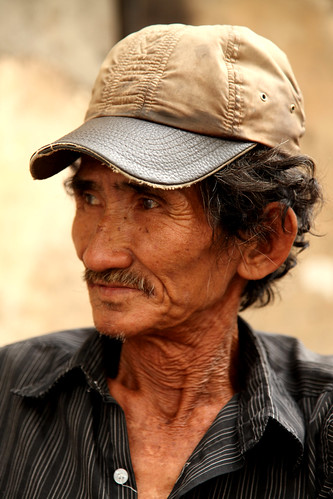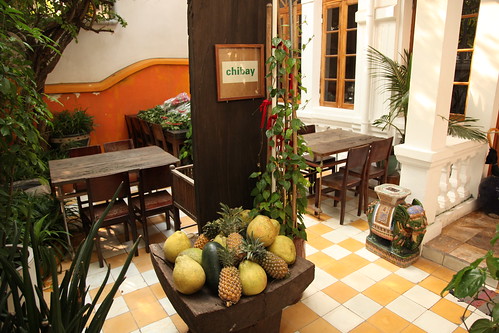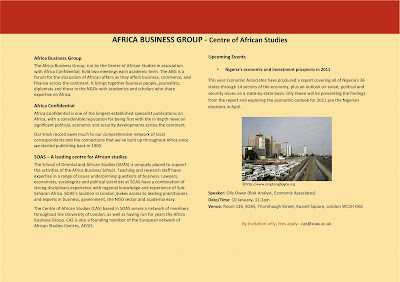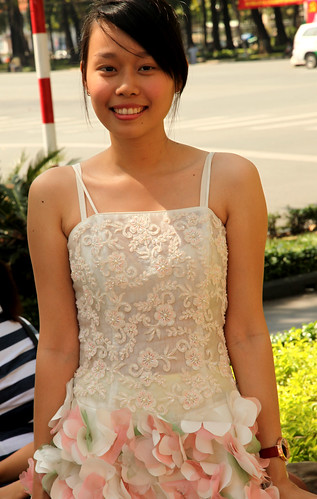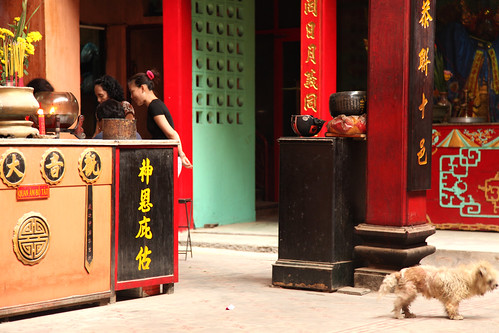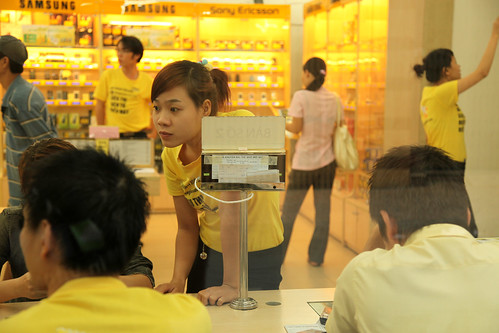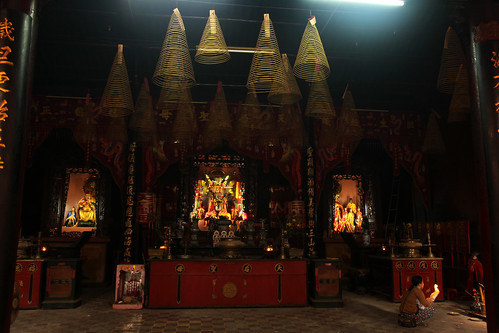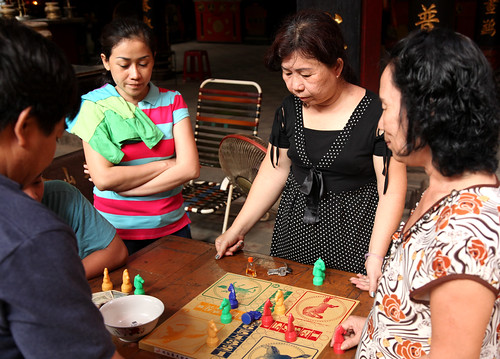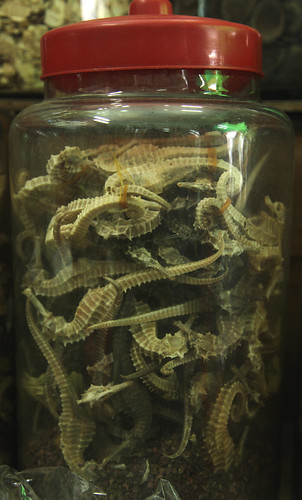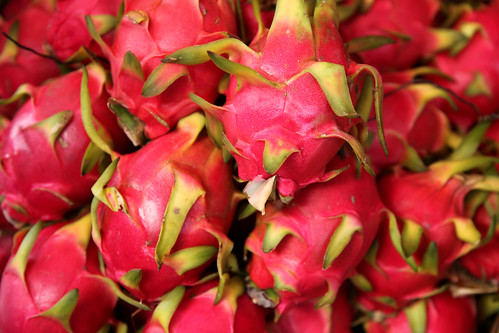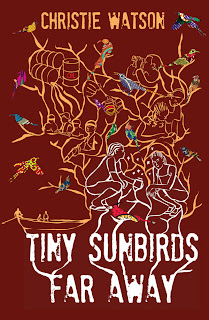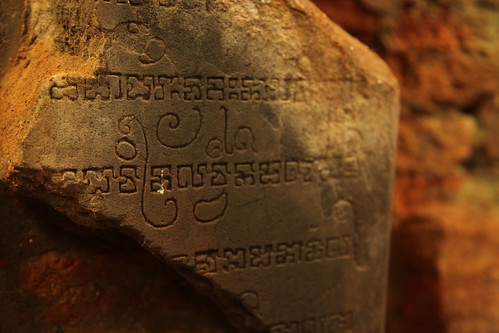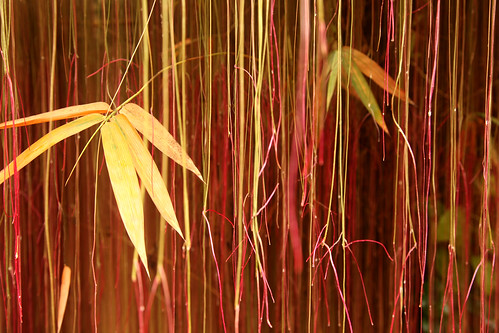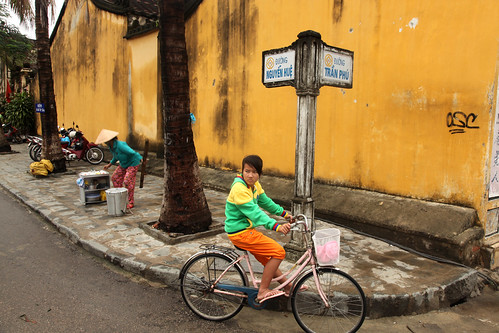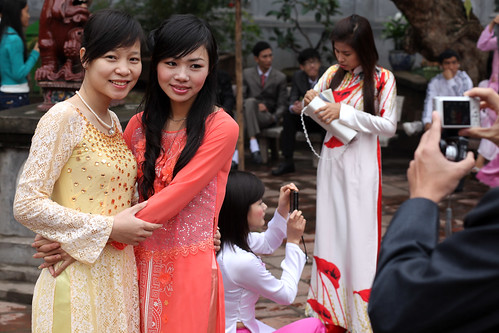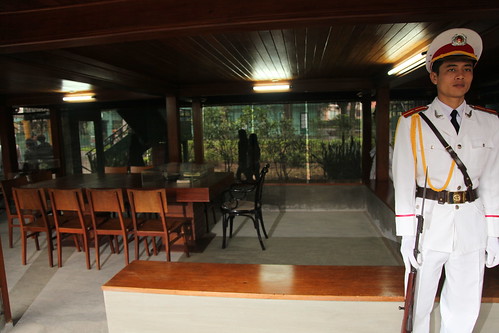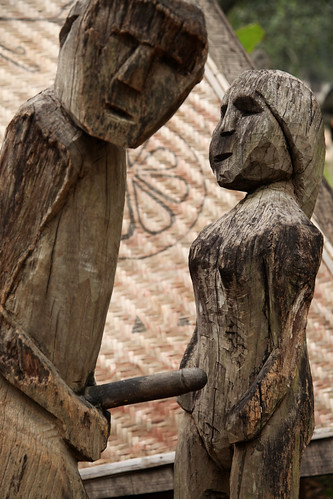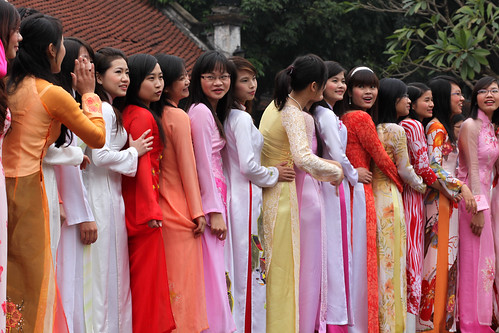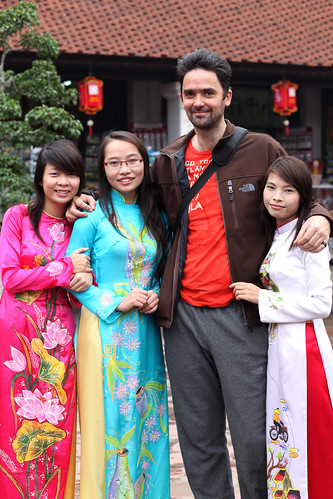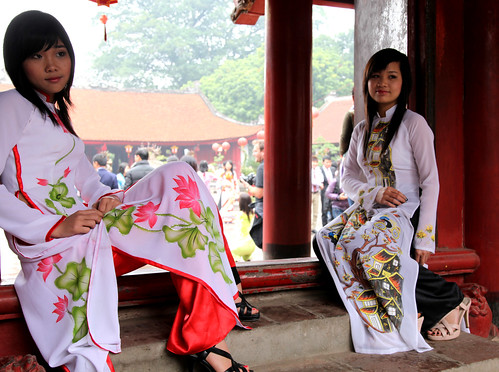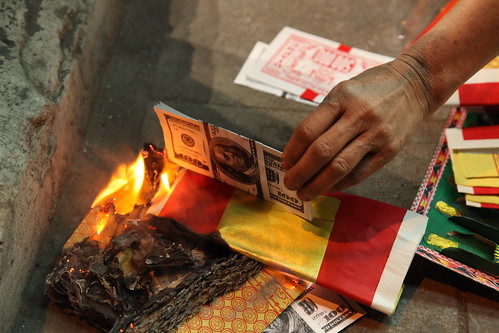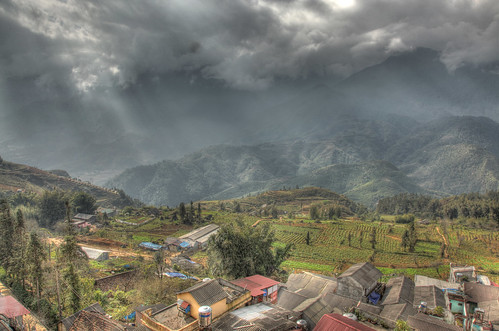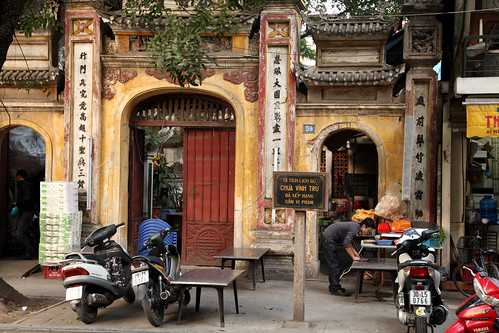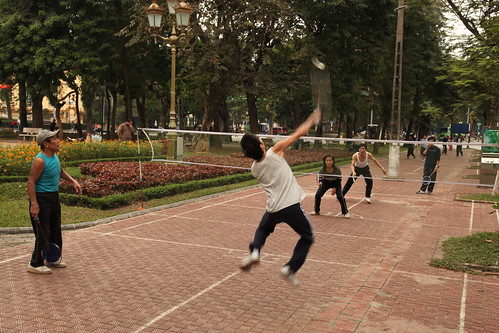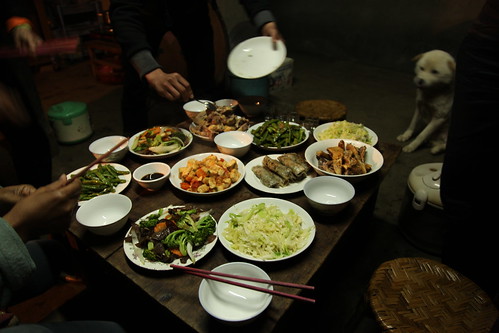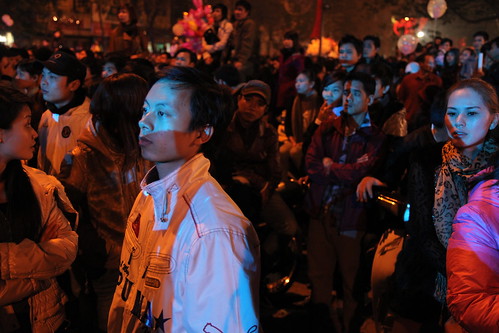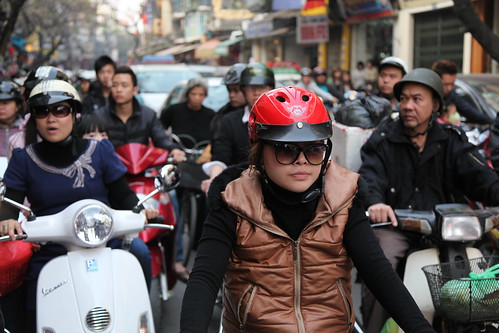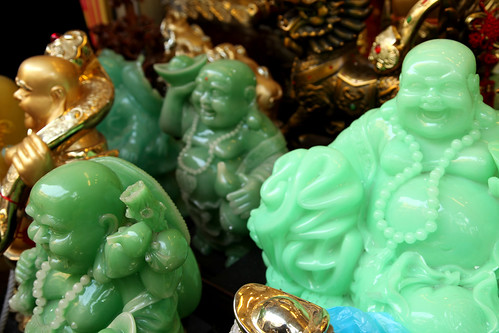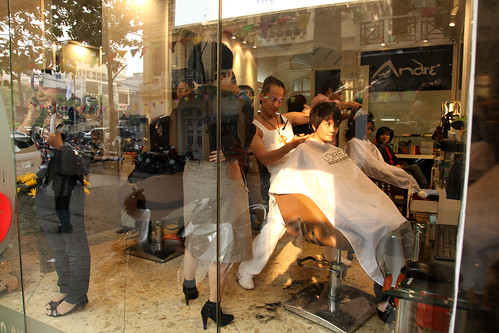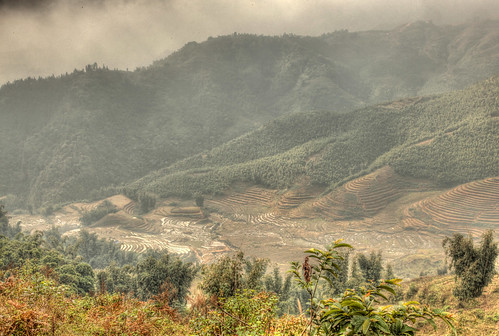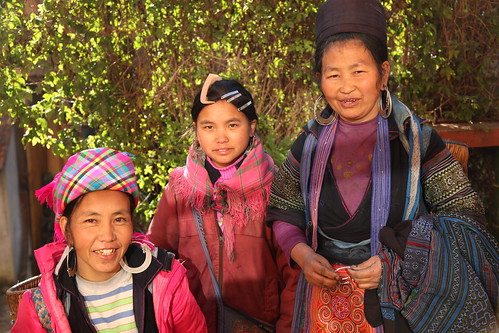Saturday, January 29, 2011
Sunday, January 23, 2011
Reclaim Naija
Wednesday, January 19, 2011
Mothers and sons
A guest post from Ayisha Osori:
A year of confrontation
My 2011 starts the way 2010 began: wondering where my seven-year-old son is and mourning our enforced separation. In a nutshell, no change in a painful situation as his father continues to deny me custody of and access to our son.
One divorce and a re-marriage later came June 26, 2009, a date I will never forget. As I prepared to board the plane to take us to Boston for me to start a Masters program, my son was pulled from my arms and for twelve months I could not see him and had very limited access. When I returned to Nigeria, I expected to be able to take my son home where he belongs, but for some reason, it makes sense to his father that our son is raised not by his parents but by a paternal uncle and his wife.
When my son was taken from me, my identity as a mother was brutalised and my belief in God and society shaken to its core. I waited for the heavens to fall for this injustice. Nothing. I waited for the clarion call of angels who guard the hearts of mothers. Silence. It took me close to a year of agonized pondering to understand why. We have a saying in Islam: whoever sees something wrong should change it with their hand; if not, then with their tongue; and if not, then with their heart. If I’m honest, I had done none of these things when I saw injustice around me. Like most Nigerians, I did not speak. And now there was no one to speak for me.
How does a society which worships parenthood separate babies from their mothers for no just cause? Why do men use children to punish or hold on to women? And what is it about our culture that makes it so easy to ignore and ill treat children and young people?
When inexplicable things happen you look for answers and explanations the same way you look for missing keys: under the table, between the cracks of chairs, in jacket pockets…everywhere and anywhere. I found to my surprise that what has happened to me happens every day. Women comfort and oppress me in turn; telling me ‘this is a man’s world’, ‘stay in your corner and pray’ and ‘your son will find you when he grows up’.
In Nigeria – I am a woman first before I am anything else. I am expected to be a certain way, and have certain expectations and to know my place. Then, I am in the same position as the average man. Not crowned by ill-gotten wealth nor cloaked by the power of ill-used public office and so like most Nigerians, the system is not supposed to work for me. I am told God is my only hope; my sword and my shield. I smile through my tears; how easily we forget that God works in mysterious ways. I think of a Hadith which says in response to a question put to Prophet Muhammad PBUH about whether a camel owner should tether his camel or trust in God, Prophet Muhammad answered ‘ tie your camel and trust in God’.
I decided to tie my camel and take a different route; I filed a lawsuit.
Most of the sisters in sorrow I have met on this journey or whose stories have crossed mine, have taken the path of least resistance. One weeps outside the gates of the house and school where her four daughters are being kept from her. Another waited 4,380 days (the time it takes the earth to go round the sun 12 times) for the son she last saw when he was 3 to find her. And others stare at their adult children, now near strangers, with unfamiliar traits. On all sides there is pain.
It is for these women and their children, our children, that I share my story, because my story like theirs is not unique. However, what makes our stories different is how we choose to interpret them and use them to empower not only ourselves but those around us.
Gradually my thoughts stopped leading me to unanswerable questions outside the realm of my influence and I found myself wondering: what am I supposed to learn from this experience? How are other mothers like me coping, what are the children thinking and what can I do to help?
There is no poem, no picture, no perfume on earth that captures the depth and tenderness of a mother’s love. It is this tenderness that I hear keeps Death at bay when a mother is near. It is said that Death waits patiently for that second when a mother’s eyes are averted from the face of her child before taking the life of that child away. But humans have no such sensibilities and so openly and with impunity they tear children away from mothers and damage our collective psyche.
We tell ourselves that the decay in our society is because we have lost our values and followed the western world. The truth is we have lost the best of our ways and adopted only the worst from outside. We have traded the strength of the Aba women and the governance of Hausa Queens for western consumerism. We continue to buy machines we cannot make or fix and continue to treat children as chattel, while ignoring the science of psychology. In the West the young have a voice, they thrive and innovate, ours use drugs in the north to escape a bleak future and in the south, use arms to rage against inequity and to join the band of greed. The latest shared iniquity – the defilement of a young girl by policemen in Kano, might not have happened if this child lived with her mother and had not had to ‘travel’ to visit her. How many of our children are put at risk daily for reasons which dissolve under scrutiny?
As I continue on my path, I wish mothers like me would realize that what makes our stories powerful is how we can take what we have learned from our experiences to deal with our narratives from yesterday, the questions that haunt us today and our dreams for tomorrow.
My dream for tomorrow is that in a country where apathy, masked as piety and nobility, has risen to an art form, we each see something wrong and change it with our hands or our tongues or at the very least with our hearts.
Monday, January 17, 2011
Fela event at SOAS tomorrow
Fela’s Legacy: Still Suffering and Smiling?
Date: Tuesday 18th January, 6pm
Venue: Brunei Suite, SOAS, Thornhaugh St, London WC1H0XG
Rikki Stein (Fela's long-time manager)
Chair: DJ Rita Ray (DJ, Producer, Founding member of The Shrine club night)
When technology goes south
Woe to Africa
A new essay by Achebe in the NYT here. Its hard to avoid a sense of reading what we already know, without learning anything in the process. The deep tectonic shifts brought about by technology and demography are not mentioned, nor is the slow change in the nature of politics in Nigeria really addressed. Its not surprising when you are commenting thousands of miles away from the action.
Read more...Friday, January 14, 2011
Thursday, January 13, 2011
On the PDP Primaries
Excellent piece by Tom Burgis of the FT on the PDP primaries, pasted below:
"Amid cartwheeling acrobats, fraying tempers and tsunamis of hard cash, Nigeria’s ruling party is choosing its presidential candidate for April’s election – and in all likelihood the next ruler of Africa’s oil giant.
It is a spectacle that any investor in the continent’s most populous – and perhaps most bewildering – nation would do well to observe.
Under the sweltering sun at the Eagle Square in Abuja, the capital, thousands of delegates gathered on Thursday to perform the biggest public ritual in Nigeria’s tragicomedy of power and patronage.
By the end, doubtless well into the tropical night, they will have chosen either Goodluck Jonathan, the incumbent and frontrunner, or Atiku Abubakar, a wealthy businessman and former vice president, as candidate for the People’s Democratic party, as it seeks to extend an unbroken hold on the presidency that began when military rule ended in 1999.
Much of the raucous debate around the primary has been ethnically charged. Jonathan is a son of the Niger delta, the oil province in the largely Christian south; like most other northerners, Abubakar is a Muslim.
At its heart, the wrangling is about securing access to the thousand capillaries of a patronage network that distributes oil revenues to ensure the hegemony of a narrow political elite.
For all the pomp at Eagle Square, the real action has already happened behind the scenes.
The aspirants’ last-minute canvassing stretched right through Wednesday night in Abuja’s air-conditioned hotels and state governors’ lodges.
Some in the capital even attribute the strengthening of the dollar against the naira in the parallel foreign exchange market to the sheer volume of hard currency required to secure delegates’ allegiance.
The recent record penalties imposed by US authorities on KBR, a former subsidiary of US oil services group Halliburton, and other members of a consortium that funnelled bribes to officials to win contracts are a reminder of the key role foreign multinationals play in the corruption that pervades Nigeria.
Until the latest act of the political drama reaches a denouement, legitimate investment is on hold. “We are hunkering down,” said one senior figure with a foreign oil group.
The risk of instability – evinced on Thursday by the red berets of the counter-terrorism squad guarding against a repeat of recent bombings in Abuja – is a Nigerian constant. Yet there is a bigger risk mounting over the horizon.
The 37 plastic chairs beside makeshift booths ranged across Eagle Square, each bearing the name of a federal state or the capital territory, send a clear signal to the delegations – comprised of local party and elected officials – that the party bigwigs will know how they voted in a process called “open secret ballot”. Loyalty to the victor will be rewarded with support from the centre come the general election; infidelity will not be.
Beyond the party, there is little accountability. Most of the 150m Nigerians have next to no say in who governs their country or how, so flawed have been the previous elections.
Jonathan and Abubakar both talk about change, of making good the party slogan about bringing power to the people. But the pressures of joblessness and destitution will only mount as Nigeria’s population grows and the political arena remains the preserve of the very few.
During the campaign, Atiku quoted Frantz Fanon’s warning that “those who make peaceful change impossible make violent change inevitable”.
It was meant as a barb to those in the PDP who have sought to thwart his bid for the ticket after he ran for a different party last time. But it serves better as a stark warning to the whole political class during primary season – and to any investor hoping that an unreformed Nigeria can muddle along for ever."
Wednesday, January 12, 2011
Job Opportunity: Warri
Partnership Initiatives in the Niger Delta (PIND) is a new foundation established to provide support for socio-economic development programmes in the Niger Delta. The foundation will be funding programmes in partnership with other donors from the public and private sector, seeking to create dynamic, multi-stakeholder partnerships that take full advantage of the synergies of involving diverse organisations and interests.
Please find below vacant position. Please kindly forward to suitable candidates.
POSITION: MANAGER FOR THE ECONOMIC DEVELOPMENT CENTRE
JOB LOCATION: Warri
JOB PROFILE
The person will be required to:
· Manage the day to day operations of the Economic Development Centre in Warri
· Continually scan and identify economic development programmes being implemented in the Niger Delta with the aim of using the information for strategic planning of PIND’s economic development programmes.
· Coordinate field implementation of PIND’s economic development programmes
· Coordinate the gathering and analysis of market information, identifying how various market systems contribute to economic development of the region and how the information affects PIND’s program intervention strategies.
· Develop and implement strategies that will strengthen market systems to stimulate more access to markets and livelihoods by the poor in the Niger Delta.
· Identify and develop partnerships focused on MSME development, creating and developing market linkages, agricultural development, and appropriate technology driven development opportunities.
· Coordinate the implementation of activities in the centre which include
· Continuous data collection and analysis on market systems
· Support for PIND’s portfolio of economic development projects
· Facilitation of seminars, workshops and training programmes
· Networking and partnership building
· Strengthening capacity of PIND’s partner organisations
· Maintain linkage with the Business Information & Training Centre in Lafia
· Provide technical assistance and mentoring to staff of the centre.
· Complete other related duties as required
Requirements
· A good first degree in Economics or Business Administration is preferred.
· At least 10 years experience in private sector oriented development programs
· At least 7 years experience in management or supervisory role
· Strong understanding of market oriented approaches to economic development
· Willing to live in Warri
· Applicants from one of the 9 states of the Niger Delta region will be given a priority over other candidates
Suitability statement and CV’s with the job title clearly indicated as the subject of the mail should be sent to; [email protected]. All applicants should please indicate their state of origin in their CV. Only shortlisted candidates will be contacted.
Monday, January 10, 2011
Khanh Ly sings
Khanh Ly sings by jeremyweate Read more...
RIP Harold Smith
Saturday, January 08, 2011
Intimate pleasures in Naija
An online intimacy boutique has launched in Naija. Here is their intro:
"We are passionate about providing the best pleasurable toys, service and advice for women in Nigeria and sexual partners of their choice in a safe and healthy environment. We are Nigeria's first online intimate shop specifically for Nigerian women.
Deliveries are discreet and confidential with a dedicated telephone line to take orders or clarify exactly what items do if still not sure.
You can order directly from the website anonymously and payment options are clear and easy."
The joy of cricket
Joseph O'Neill on the unadulterated (except by Indian mobile phone ads) bliss of England winning the Ashes, here. The argument to make one of the jewels in the sporting calendar free-to-air in the UK again grows all the more stronger. Humiliation of the Aussies should be pleasure available to all.
All of which reminds me that I met a British bloke last night in Saigon who's dad used to play for the Nigerian cricket team in the 1950s. Which reminds me: the main problem with Nigeria is that there's not enough cricket going on.
Nigeria Investment Prospects 2011 - event at SOAS on Monday
Click the image to enlarge and read the flyer. If you'd like to attend, email Angelica on [email protected] Read more...
Friday, January 07, 2011
Cuc Gach Quan
Thursday, January 06, 2011
The game in the temple
Not sure that they are playing xiangqi. Any ideas what the name of this game is? There are two die in the bowl that are thrown by each of the four players on their turn.
Read more...Wednesday, January 05, 2011
Which cover would you choose?
Happy New Year, everyone. The last year was a challenging but satisfying one for us at Cassava Republic Press. We want to thank you for your generous support.
We think all three of them are wonderful, but we would love to know which one you prefer.
Tuesday, January 04, 2011
Sunday, January 02, 2011
At the Museum of Ethnology
An example of a traditional Giarai dwelling in the grounds of the Museum of Ethnology.
Read more...Saturday, January 01, 2011
After the countdown, Jan 1st 2010
The largest crowd in Ha Noi last night gathered by Hoan Kiem lake.
Read more...



